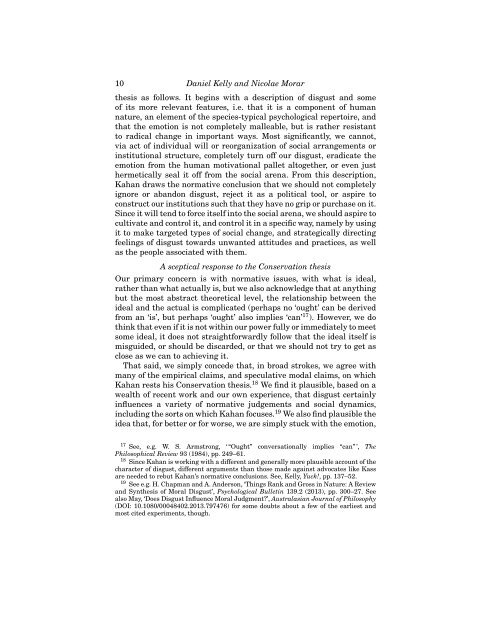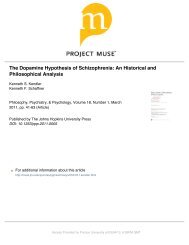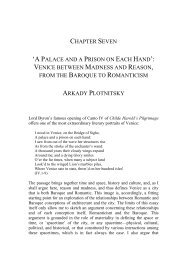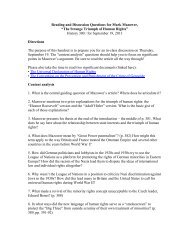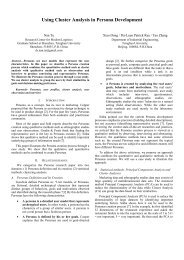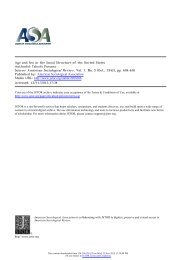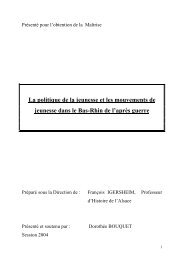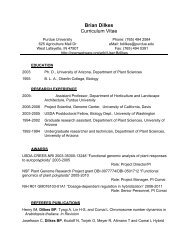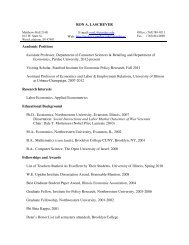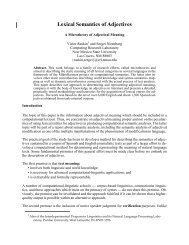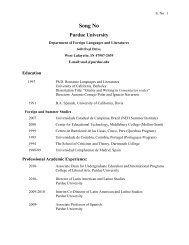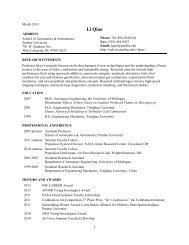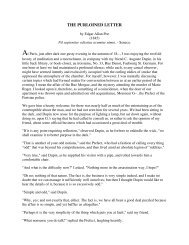Against the Yuck Factor - Career Account Web Pages - Purdue ...
Against the Yuck Factor - Career Account Web Pages - Purdue ...
Against the Yuck Factor - Career Account Web Pages - Purdue ...
Create successful ePaper yourself
Turn your PDF publications into a flip-book with our unique Google optimized e-Paper software.
10 Daniel Kelly and Nicolae Morar<br />
<strong>the</strong>sis as follows. It begins with a description of disgust and some<br />
of its more relevant features, i.e. that it is a component of human<br />
nature, an element of <strong>the</strong> species-typical psychological repertoire, and<br />
that <strong>the</strong> emotion is not completely malleable, but is ra<strong>the</strong>r resistant<br />
to radical change in important ways. Most significantly, we cannot,<br />
via act of individual will or reorganization of social arrangements or<br />
institutional structure, completely turn off our disgust, eradicate <strong>the</strong><br />
emotion from <strong>the</strong> human motivational pallet altoge<strong>the</strong>r, or even just<br />
hermetically seal it off from <strong>the</strong> social arena. From this description,<br />
Kahan draws <strong>the</strong> normative conclusion that we should not completely<br />
ignore or abandon disgust, reject it as a political tool, or aspire to<br />
construct our institutions such that <strong>the</strong>y have no grip or purchase on it.<br />
Since it will tend to force itself into <strong>the</strong> social arena, we should aspire to<br />
cultivate and control it, and control it in a specific way, namely by using<br />
it to make targeted types of social change, and strategically directing<br />
feelings of disgust towards unwanted attitudes and practices, as well<br />
as <strong>the</strong> people associated with <strong>the</strong>m.<br />
A sceptical response to <strong>the</strong> Conservation <strong>the</strong>sis<br />
Our primary concern is with normative issues, with what is ideal,<br />
ra<strong>the</strong>r than what actually is, but we also acknowledge that at anything<br />
but <strong>the</strong> most abstract <strong>the</strong>oretical level, <strong>the</strong> relationship between <strong>the</strong><br />
ideal and <strong>the</strong> actual is complicated (perhaps no ‘ought’ can be derived<br />
from an ‘is’, but perhaps ‘ought’ also implies ‘can’ 17 ). However, we do<br />
think that even if it is not within our power fully or immediately to meet<br />
some ideal, it does not straightforwardly follow that <strong>the</strong> ideal itself is<br />
misguided, or should be discarded, or that we should not try to get as<br />
close as we can to achieving it.<br />
That said, we simply concede that, in broad strokes, we agree with<br />
many of <strong>the</strong> empirical claims, and speculative modal claims, on which<br />
Kahan rests his Conservation <strong>the</strong>sis. 18 We find it plausible, based on a<br />
wealth of recent work and our own experience, that disgust certainly<br />
influences a variety of normative judgements and social dynamics,<br />
including <strong>the</strong> sorts on which Kahan focuses. 19 We also find plausible <strong>the</strong><br />
idea that, for better or for worse, we are simply stuck with <strong>the</strong> emotion,<br />
17 See, e.g. W. S. Armstrong, ‘ “Ought” conversationally implies “can” ’, The<br />
Philosophical Review 93 (1984), pp. 249–61.<br />
18 Since Kahan is working with a different and generally more plausible account of <strong>the</strong><br />
character of disgust, different arguments than those made against advocates like Kass<br />
are needed to rebut Kahan’s normative conclusions. See, Kelly, <strong>Yuck</strong>!, pp.137–52.<br />
19 See e.g. H. Chapman and A. Anderson, ‘Things Rank and Gross in Nature: A Review<br />
and Syn<strong>the</strong>sis of Moral Disgust’, Psychological Bulletin 139.2 (2013), pp. 300–27. See<br />
also May, ‘Does Disgust Influence Moral Judgment?’, Australasian Journal of Philosophy<br />
(DOI: 10.1080/00048402.2013.797476) for some doubts about a few of <strong>the</strong> earliest and<br />
most cited experiments, though.


